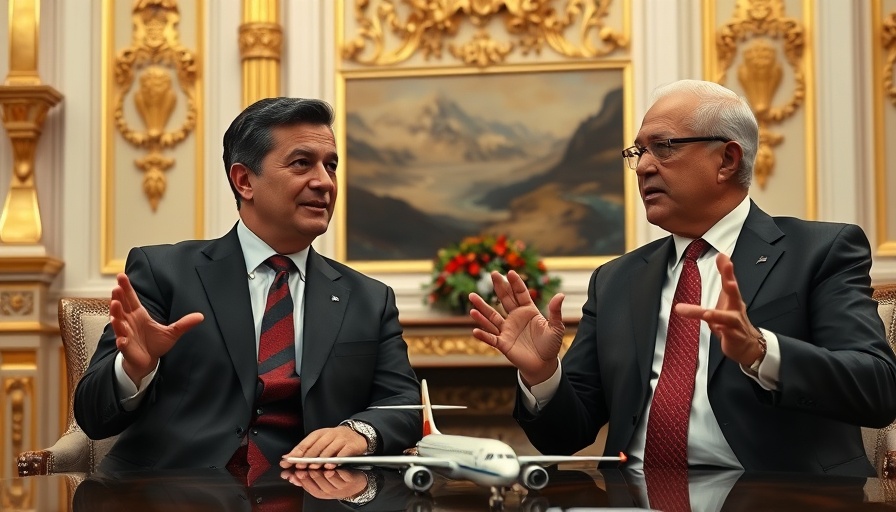
Israel's Ambitious Goal: Ending the Trade Deficit
In a bold statement during his recent meeting with President Trump, Israeli Prime Minister Benjamin Netanyahu declared that Israel would eliminate its $7.4 billion trade deficit with the United States. This figure represents an 8.6% rise from the previous year, illustrating the growing economic gap between the two allies.
The Trade Landscape: What Each Side Exports
Understanding the current trade dynamics is essential to grasp the significance of Netanyahu's declaration. In 2023, the United States exported approximately $14.8 billion worth of goods to Israel, while Israel exported significantly more, totaling $22.2 billion. Key exports from Israel include diamonds, microchips, and broadcasting equipment, reinforcing Israel’s reputation as a high-tech powerhouse. Conversely, the U.S. imports include ammunition and pharmaceuticals, essential components of various sectors.
The Push for Free Trade
Netanyahu's insistence on fair trade and the reduction of tariffs offers insight into his administration's economic strategy. The historical free-trade agreement between the U.S. and Israel, established in 1985, is the foundation upon which they aim to build a stronger economic relationship. In light of Trump's recently announced tariffs, addressing trade barriers is of utmost importance for Israel to maintain its growth trajectory.
Looking Ahead: What This Means for the Future
Netanyahu emphasizes that Israel can serve as a model for other nations, echoing a broader call for global economic cooperation. By swiftly addressing the trade deficit through enhanced cooperation and a reduction of remaining tariffs, both countries could pave the way for a mutually beneficial relationship. Investors and businesses alike should monitor these developments closely as they may signal shifts in trade policies that affect the broader market.
The Bigger Picture
As the dynamics between the U.S. and its allies evolve, Israel’s proactive engagement in trade discussions underlines the importance of adapting to new economic realities. Both leaders’ commitments to a trade agenda may not only strengthen bilateral ties but also set a precedent for future economic interactions globally.
 Add Row
Add Row  Add
Add 




 Add Row
Add Row  Add
Add 

Write A Comment